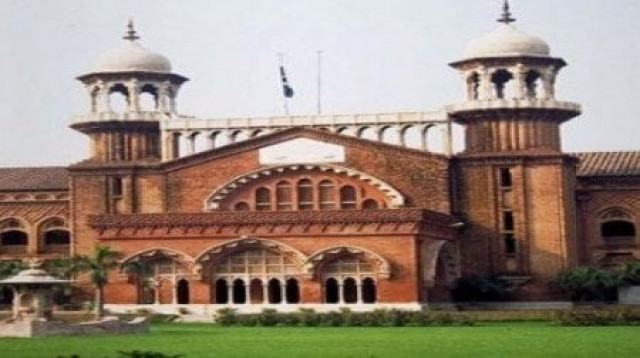Jaggery production permitted
LHC sets aside restrictions imposed on farmers under 73-year-old law

Setting aside the 73 years old Gur Control Order, Lahore High Court’s (LHC) Justice Shahid Jamil Khan has permitted farmers to produce jaggery and raw sugar.
“In this court’s opinion, there is no apparent existing force of law behind the order of 1948. Even if exists, it appears to be in violation of Article 18 of the Constitution, particularly when no support price is fixed for purchase of sugarcane by government to protect growers’ interest,” the court declared.
“The order of 1948 is held ultra vires hence void, being in violation of fundamental rights guaranteed by the Constitution,” the judgment read.
Justice Shahid Jamil Khan heard petitions filed by several sugar mill owners against the fixing of sugar price by the government.
In the detailed verdict, the judge directed all federal and provincial enforcement agencies to refrain from taking any action against farmers producing Gur or raw sugar.
It stated that price control and competition laws were meant to protect consumers’ right, but they needed to be implemented in a balanced manner, because a thriving and stable economy was the backbone of a country, for which certainty in policymaking and enforcement of law was a sine qua non.
It is important to note that excessive price control may lead to disruptions in market, like decrease in quality and losses for producers, which may result in flight of investment.
Read Pakistan to halt import of agri commodities
“The price control and competition laws are not enforced effectively in Pakistan, as is discernable from pleadings and arguments during proceedings” the judge declared.
The verdict added that an inevitable result of the situation was unpredictable hikes in prices of essential commodities and failure of the government to bring them within the purchasing power of the lower income class, which was a duty of the state with respect to fundamental rights, particularly under Articles 9 and 14 read with Article 38 of the Constitution.
It noted that a common person earning minimum wage was being subjected to indirect taxes equal to a rich citizen in the country.
The detailed judgment stated that Barrister Ahmad Qayyum and Chaudhary Sultan Mehmood were appointed as amicus to assist the court on the legal position of some laws after the 18th Amendment to the Constitution.
The court was informed that a part of the Rules of Business 1973 titled ‘National Food Security and Research Division’ was incorporated after the 18th Amendment in the Constitution, which showed that price control for essential food items was a primary responsibility of the federal government.
It was also apprised that support price of wheat used to be determined by the federation before the 18th Amendment by the Agriculture Price Commission, but the responsibility had been abdicated without any apparent amendment to any law.
During arguments Advocate Shahzad Ata Elahi, representing sugar mills, stated that the ratio of restrictions under the order of 1948 was 25% for manufacturing jaggery. It was admitted that price of sugar is being determined by market forces.
The court was apprised that a buffer stock used to be maintained by the Trading Corporation of Pakistan. However, the practice had been abandoned by the federal government, apparently after the 18th Amendment. The price of sugar was controlled by meeting the demand in market and to avoid any hasty decision of import in case of its shortage at an exorbitant price.
“Since the legal issues have already been resolved or settled, this court would not indulge itself in technicalities of price fixation, when a competent forum for this purpose has already been created under the law,” the LHC declared.
Published in The Express Tribune, October 3rd, 2021.



















COMMENTS
Comments are moderated and generally will be posted if they are on-topic and not abusive.
For more information, please see our Comments FAQ